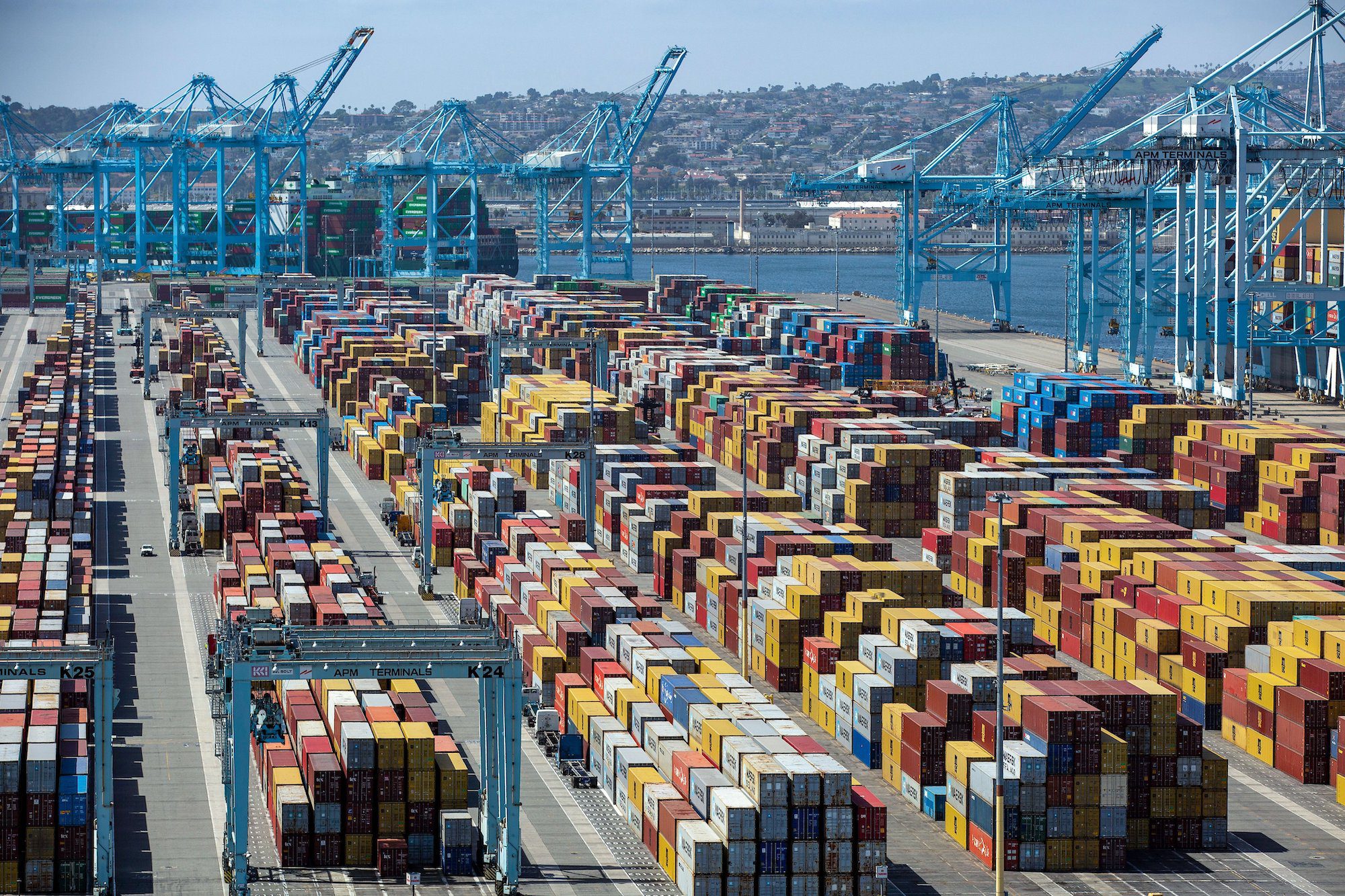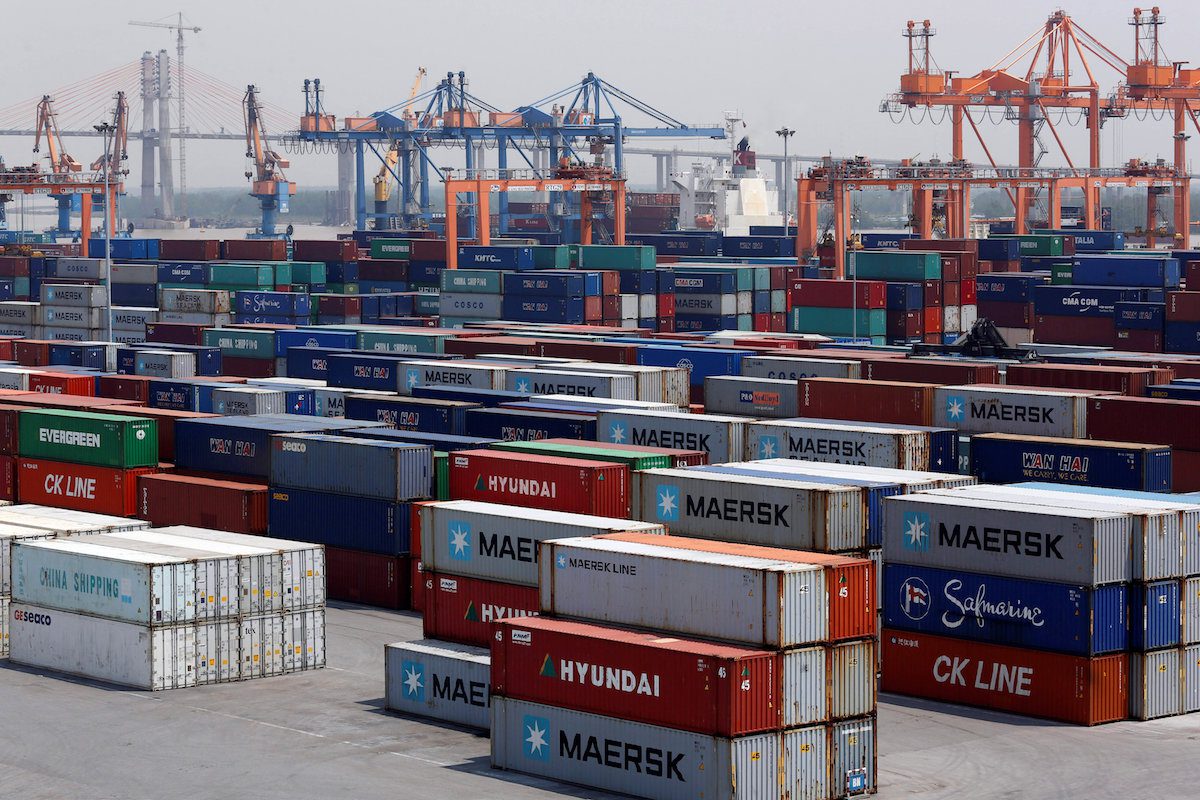The Pacific Maritime Association and the International Longshore and Warehouse Union have announced a tentative agreement in West Coat labor negotiations, ending more than a year uncertainty that has had major impacts on the U.S. container trade.
The new six-year contract covers workers at all 29 West Coast ports. Details of the agreement have not yet been released and both sides still need to ratify the new contract before it becomes official.
A joint statement from the ILWU and PMA said the deal was reached with assistance from Acting U.S. Secretary of Labor Julie Su, who joined the negotiations in San Francisco earlier this week.
“We are pleased to have reached an agreement that recognizes the heroic efforts and personal sacrifices of the ILWU workforce in keeping our ports operating,” said PMA President James McKenna and ILWU President Willie Adams. “We are also pleased to turn our full attention back to the operation of the West Coast Ports.”
“While the final decision is up to our members, we feel our time at the bargaining table was well spent and that the agreement represents the hard work of our rank and file and the sacrifices they made during the pandemic,” Adams said Thursday.
Acting U.S. Secretary of Labor Julie Su said the agreement demonstrates once again that collective bargaining, though at times difficult, works.
“Thanks to the hard work and perseverance of the leadership of the ILWU and the PMA, the tentative agreement delivers important stability for workers, for employers and for our country’s supply chain,” said Secretary Su. “This important milestone is welcome news to all, and on behalf of President Biden, we are pleased to congratulate both parties on what they have achieved.”
President Biden congratulated both sides for reaching an agreement. “I want to thank Acting Labor Secretary Julie Su who used her deep experience and judgment to keep the parties talking, working with them to reach an agreement after a long and sometimes acrimonious negotiation. Above all I congratulate the port workers, who have served heroically through the pandemic and the countless challenges it brought, and will finally get the pay, benefits, and quality of life they deserve,” said President Biden.
The collective bargaining agreement covers more than 22,000 longshore workers at container terminals operated by PMA members up and down the U.S. West Coast. Although negotiations made initial progress, tensions heightened this spring resulting in minor disruptions at the ports of Los Angeles and Long Beach. The situation reached a critical point earlier this month when several West Coast container terminals experienced complete shutdowns.
The negotiations have taken place over a period of extreme cargo volume volatility. They began last year on the tail end of the record-setting cargo surge in the wake of the COVID-19 pandemic and continued until now, when cargo volumes have returned to 2019 levels.
The absence of a deal has also contributed to a redrawing of the U.S. container trade, causing cargo volumes to shift to ports on the East and Gulf Coasts as shippers sought to avoid potential disruptions on the West Coast.
“The tentative agreement between the ILWU and the PMA brings the stability and confidence that customers have been seeking,” said Port of Los Angeles Executive Director Gene Seroka. “We’re grateful to Acting Secretary of Labor Julie Su, ILWU International President Willie Adams and PMA President James McKenna for their leadership and resolve. We look forward to collaborating with our partners in a renewed effort to bring back cargo and demonstrate why Los Angeles is the first choice for Trans-Pacific trade.”
National Retail Federation President and CEO Matthew Shay expressed relief on behalf of retailers and stressed the critical importance of West Coast ports.
“A new agreement provides stability to the supply chain and assurance to the millions of businesses and employees who rely on smooth and efficient operations from the West Coast ports,” said Shay.
“The West Coast ports are a critical artery for retailers and other businesses into the U.S. market. We urge the parties to quickly ratify the tentative agreement to bring certainty back to the West Coast ports. It is essential to begin the negotiation process early for the next labor contract and avoid a future lapse in continuity.”
ILUW’s Willie Adams explained the next steps in the ratification process in an update on Thursday:
“The next step for us is to follow our ratification procedures. This starts with a contract caucus that convenes delegates from our 29 locals up and down the West Coast. These delegates will carefully review the tentative agreement and make a recommendation to the rank and file who will then vote on the tentative agreement. This process takes a few months to complete,” he said, while also reiterating that details of the agreement will not be shared publicly until the ratification process is complete.
“I want to thank all who worked so diligently on these negotiations along with a special thank you to Acting Secretary of Labor Julie Su whose leadership helped us cross the finish line,” he added.

 Join The Club
Join The Club











